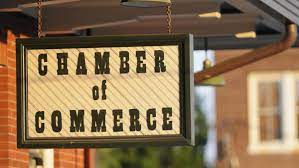What Is The Definition Of A Chamber Of Commerce?
A Chamber of Commerce is a network or association of businesspeople formed for the purpose of promoting and protecting their members' interests. A chamber of commerce is frequently comprised of business owners who share a common location or interest, but can also be global in scope. They will elect leadership, appoint representatives, and deliberate on which policies to advocate for and promote.
Author:Dexter CookeReviewer:Darren McphersonMar 14, 202288.8K Shares1.9M Views
A Chamber of Commerceis a network or association of businesspeople formed for the purpose of promoting and protecting their members' interests. A chamber of commerce is frequently comprised of business owners who share a common location or interest, but can also be global in scope. They will elect leadership, appoint representatives, and deliberate on which policies to advocate for and promote.
Chambers of commerce are located throughout the world. They are not directly involved in the creation of laws or regulations, but their organized lobbying efforts may be effective in influencing regulators and legislators.
The Operation Of A Chamber Of Commerce
In 1599, France established the first chamber of commerce. The first one in the United States began in 1768 in New York. The United States Chamber of Commerce was founded in 1912 and advocates for pro-business policies at the national level through lobbying efforts. Chambers of commerce at the state, city, regional, and local levels focus on issues and advocacy that affect their specific membership.
These chambers of commerce may or may not be affiliated with the United States Chamber of Commerce through the Federation Partnership Program. The national chamber favors conservative politicians and is the largest lobbying organization in the United States. Chambers of commerce are distinct from trade associations or trade groups, which promote a particular industry.
Chamber members receive a variety of benefits, including deals and discounts from other chamber members, inclusion in a member directory, and access to a variety of other programs and services aimed at promoting regional business activity.
Chambers of commerce also play a significant role in local municipalities, promoting business activity and advocating on behalf of chamber members. At the very least, on a local level, chamber of commerce members frequently convene to discuss and attempt to shape policies affecting business and the overall economic environment. Members also receive the distinction of being a preferred local vendor, in addition to being listed on various municipal websites and publications.
How A Chamber Of Commerce Is Profitable
Numerous chambers of commerce rely heavily on membership dues for revenue. Most chapters offer various levels of membership at varying prices with varying benefits.
Each member is required to pay dues, which assist in defraying the organization's operating expenses. Additionally, chambers may hold fundraising events to raise additional funds or may require the purchase of special tickets to attend their events.
Typically, chambers of commerce are taxed as 501(c)(6) corporations. This classification enables chambers of commerce to operate as nonprofit organizations while also empowering them to represent their members on policy issues.
Chambers Of Commerce Variety Of Forms
Chambers Of Commerce At The Regional, City, And Community Levels
Regional, city, and community chambers focus on regional or local issues, but may also promote broader pro-business initiatives that cross borders, such as promoting trade between immigrant groups and their home country.
City Council Chambers
City chambers' mission is to advance a city's economic interests on a local, regional, and possibly global level.
State Chambers
State chambers in the United States focus on statewide and occasionally national advocacy, giving them a greater influence over regulations and legislation.
National Or International Chambers Of Commerce
Chambers of commerce at the national or international level focus on advocacy or lobbying for national or global issues.
Compulsory Chambers
In some countries, businesses of a certain size are required to join a chamber of commerce, which acts as a self-regulatory body while also promoting member businesses, promoting economic development, and supervising worker training. Chambers of this type are popular in Europe and Japan.
Chambers of commerce provide critical economic data in some countries by surveying their membership. The British Chambers of Commerce Quarterly Economic Survey, for example, is used by the government to assess the economy's health.
Conclusion
Chambers of Commerce will advocate for public policies that are generally beneficial to business. Additionally, specific chambers of commerce may advocate for policies that benefit specific industries or geographic regions. Chambers of commerce may employ a variety of tactics, including lobbying, public statements, attempting to educate members, and mobilizing other business groups or factions around a particular issue.
Chambers of Commerce can serve as a liaison between governments, small businesses, corporations, educational institutions, religious organizations, and the general public. They typically rely on volunteers to ensure their success. Additionally, becoming involved with a chamber of commerce in your community can provide significant benefits, such as meeting new people, making new contacts, and possibly gaining new customers.

Dexter Cooke
Author
Dexter Cooke is an economist, marketing strategist, and orthopedic surgeon with over 20 years of experience crafting compelling narratives that resonate worldwide.
He holds a Journalism degree from Columbia University, an Economics background from Yale University, and a medical degree with a postdoctoral fellowship in orthopedic medicine from the Medical University of South Carolina.
Dexter’s insights into media, economics, and marketing shine through his prolific contributions to respected publications and advisory roles for influential organizations.
As an orthopedic surgeon specializing in minimally invasive knee replacement surgery and laparoscopic procedures, Dexter prioritizes patient care above all.
Outside his professional pursuits, Dexter enjoys collecting vintage watches, studying ancient civilizations, learning about astronomy, and participating in charity runs.

Darren Mcpherson
Reviewer
Darren Mcpherson brings over 9 years of experience in politics, business, investing, and banking to his writing. He holds degrees in Economics from Harvard University and Political Science from Stanford University, with certifications in Financial Management.
Renowned for his insightful analyses and strategic awareness, Darren has contributed to reputable publications and served in advisory roles for influential entities.
Outside the boardroom, Darren enjoys playing chess, collecting rare books, attending technology conferences, and mentoring young professionals.
His dedication to excellence and understanding of global finance and governance make him a trusted and authoritative voice in his field.
Latest Articles
Popular Articles

